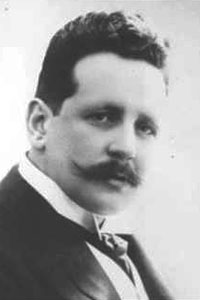The History of Felix Senius

Born: 1868
Died: 1913
Russian / German Tenor.
In the gramophone’s collectors’ corner of February 1939, we read:
“and those old papers are filled with uniformly glowing reports about the superiority of this eminent artist Felix Senius, whose records form one of the greatest monuments of the art of singing.
His rendering of Beethoven’s difficult and beautiful Andalade, is the best Beethoven singing on any record I have ever heard.
Likewise, his Mozart style, will never be equaled or even approached, and the same can be said of the other records he left us.
He was one of the few artists, who sang or recorded great music only.He never wasted his noble gifts on anything decidedly inferior.
His glorious career began in the early 90s in Russia, where he was a declared favorite of a most pretentious public, for there were always those great stars of international reputation, as well as the great Russian singers.
In Moscow, he was hailed as the greatest tenor was Sobinoff, who was equally admired.
In Saint Petersburg, he sang with the greatest of the great. Always successful, always second to none, and in a concert with Freda and Cashman, he was applauded most of all.Early in the century, he came back to Germany and devoted his art to concerts and oratorial.
Besides he toured the continent in England, everywhere his success was immense.
He was a special favorite of Arthur Nicish, the great conductor of Vienna and he was a declared successor of a Gustav Walter, one of the greatest singers of all time.
This was written by Paul Willhelm, one of the world’s most famous collectors, who was obviously greatly impressed by the singer.
Senius was one of those artists, who recorded as a star, for one of the smaller record companies.
In this case, Anka”.
So, after such a build-up, we must hear some Mozart. He was 44 when he made this record in 1912.
Un’ Aura Amorosa / C-Fan Tutte / 1912 – Felix Senius

The History as it was Recorded
Sydney Rhys Barker
